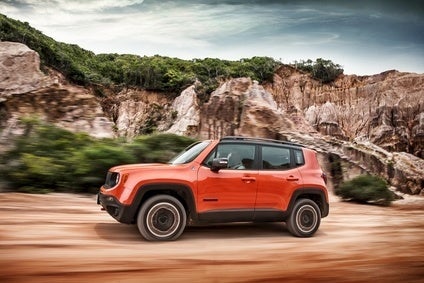
The first compact, diesel SUV made in Brazil that can be purchased for less than BRL100,000/US$32,700, FCA’s Jeep Renegade reopens the long running discussion here on whether or not to allow the fuel to be used in all types of vehicle.
Currently, diesel SUVs must have four wheel drive and low range gearboxes and the fuel simply isn’t allowed in cars.

Discover B2B Marketing That Performs
Combine business intelligence and editorial excellence to reach engaged professionals across 36 leading media platforms.
Brazil has had a decades long dependency on imported diesel fuel and has also been importing petrol again lately.
It is always worth remembering, however, there is no economically feasible alternative to diesel fuel for trucks, buses and other heavy vehicles. Biodiesel production is still too expensive since the fuel is obtained here in Brazil from grains (soy bean).
Light diesel vehicles achieve 20% better fuel mileage than petrol models on average yet this difference is narrowing thanks to the growing use of direct fuel injection, turbocharging and downsized, smaller displacement engines.
A heavier, diesel engine costs up to 50% more to manufacture than a petrol unit which translates into a retail price some 10% higher. Depending on fuel prices, it requires a lot of driving to offset the premium paid when buying a new car. Higher diesel fuel prices (like most of Europe’s) don’t help.
Some European governments have recently decided that old diesel – highly polluting – cars must be banned for good. Yet in France and Belgium, for example, two thirds of new cars use the same fuel as heavy vehicles.
More affordable compact cars are usually driven less than medium and large models. Therefore it is more likely most buyers will opt for petrol engines when trading in diesel cars produced before 2011.
Perhaps this should be considered more deeply here in Brazil. A lobby group of diesel component suppliers is campaigning to extend the engines to light cars. However, no automaker is involved.
There are other complicating factors in Brazil. Recent modern diesel engines can only run on low sulphur fuel (S10 here) but it is not yet available everywhere.
Such engines also need a separate, chemically pure, urea supply for emissions control.
Limiting diesel engines’ emissions of fine particles and NOx depends on vehicle owners sticking to strict maintenance plans. Since any law mandating regular vehicle inspections has always been opposed here in Brazil it is feared that technical advances would fade out as the fleet ages.
Brazil’s petrol is blended with up to 27% ethanol (E27) while pure ethanol (E100) completely substitutes for petrol in light vehicles powered by flexible fuel engines.
This ‘green’ fuel is produced from sugar cane and cuts CO2 emissions ‘well to wheel’ by some 80% compared to petrol.






